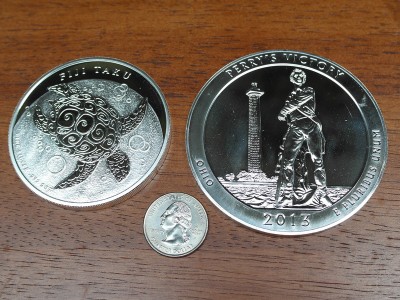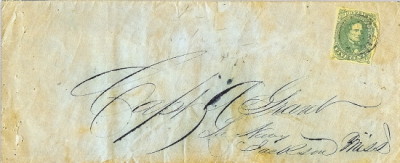I was doing some genealogy research on some of Dad’s family, going back to his great grandparents and working my way down those families, finding some of his second cousins. His great grandfather, John Cashin, who emigrated from Ireland to Augusta, had a lot of children (at least 9), one of whom was Agnes Cashin. Agnes married a jeweler whose parents had emigrated from Germany, named Antone Renkl. They had five children. Their middle daughter was named Fidelis, born in 1890 and a first cousin of Papa’s.
I was working on familysearch.org and trying to find out if Fidelis was ever married. I had found spouses and children of her brothers and sisters already, but if you don’t find a marriage record, it is hard to find records of women once they adopt their married name. I did a Google search on her (how many people could be named Fidelis Renkl?) and found a mention of her in a Charlotte newspaper where she was a maid of honor. Wedding announcements are usually pretty good sources because they mention not only the spouse, but parents and brothers and sisters and sometimes where they live, etc. But the scanned text of the article seemed to be mixed up with something about Ty Cobb, the legendary baseball player. Reading closer, it was clear that Fidelis Renkl was in the article because she was the maid of honor at Ty Cobb’s wedding in Augusta in August 1908. She must have been very good friends with Charlotte “Charlie” Marion Lombard, Cobb’s 17 year old bride. Because he had taken off from the team without permission and was missing games, the wedding was rushed and he took his new wife back to Detroit as quickly as possible. The Tigers were trying to get to the World Series and he wound up missing 4 home games (the Cobbless Tigers still won 3 of them). How long ago was this? It was the fifth world series ever. Detroit wound up with the best record in the American League (no playoffs then), but lost the World Series to the Chicago Cubs. The story of his wedding appears in a book about Ty Cobb here and the newspaper article that mentions Fidelis is here, also quoted below.
I never did find a spouse for her because apparently she never got married. She lived in Alabama most of her life, in Birmingham for a while, where her brother, Antone, and his family lived before he died in a car accident in 1934. She died at age 77 in 1967 in Andalusia, Alabama, where her brother’s widow died and was buried in 1954. So maybe she helped raise her brother’s kids. She was buried in Augusta’s Magnolia Cemetery with a lot of other Renkls and Cashins, even though Papa and Barbadee and a bunch of the more recent Cashins are buried in Westover.
Here’s the text from the Charlotte article:
Augusta, Ga., August 6 Today at high noon, Tyrus Raymond Cobb and Miss Charlie Marion Lombard were quietly married at “The Oaks,” the country home of the bride’s parents, nine miles from Augusta. The ceremony was performed by Rev. Thomas Walker, pastor of the Woodlawn Baptist church, of this city. Mr. William Sheron was best man and Fidelis Renkl was maid-of-honor. Only the most intimate friends and immediate members of the family were present. Cobb arrived this morning from Atlanta and proceeded to the home of his bride-to-be without delay, not even tarrying in town to see the many friends who were anxious to greet him.


